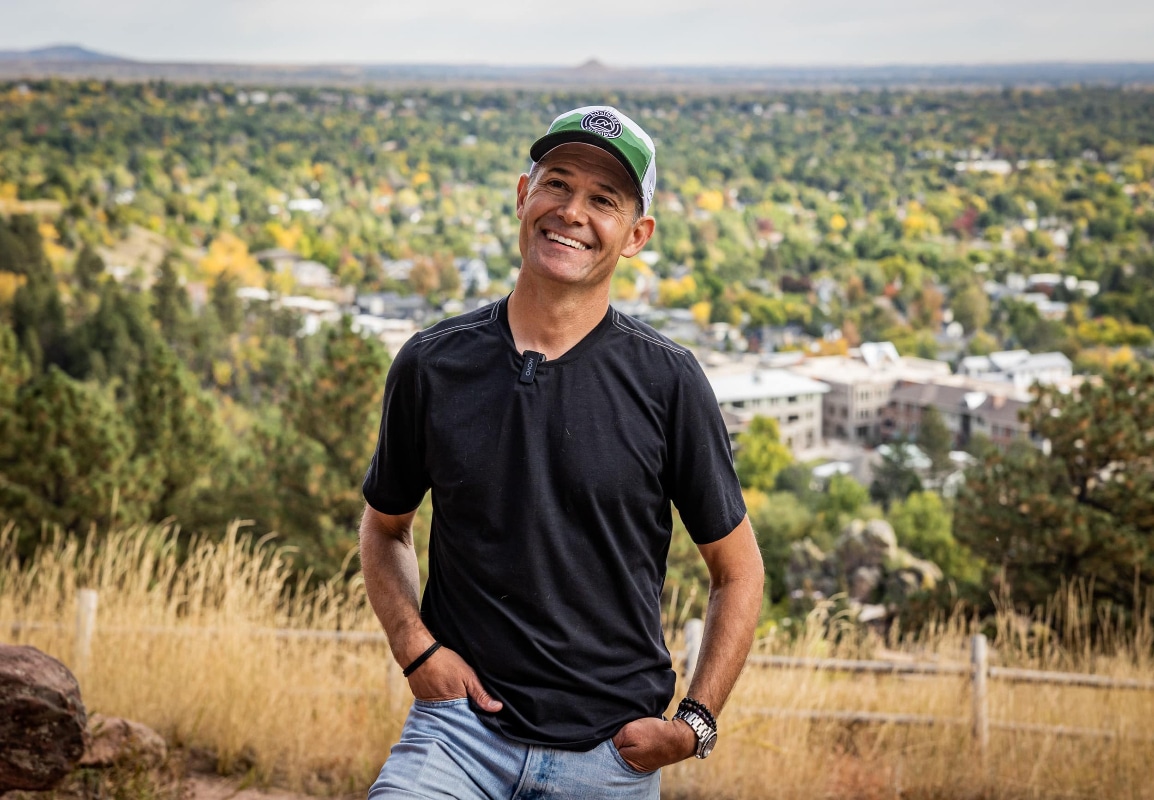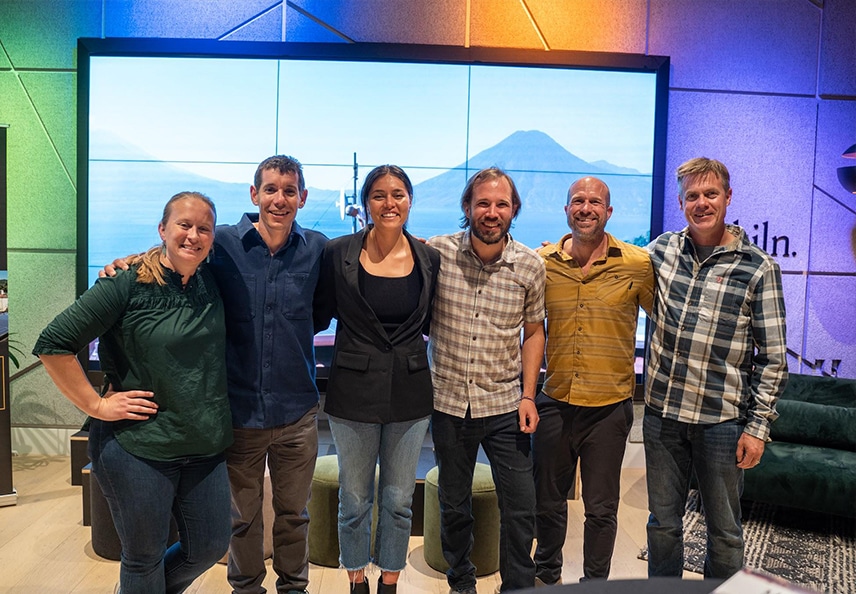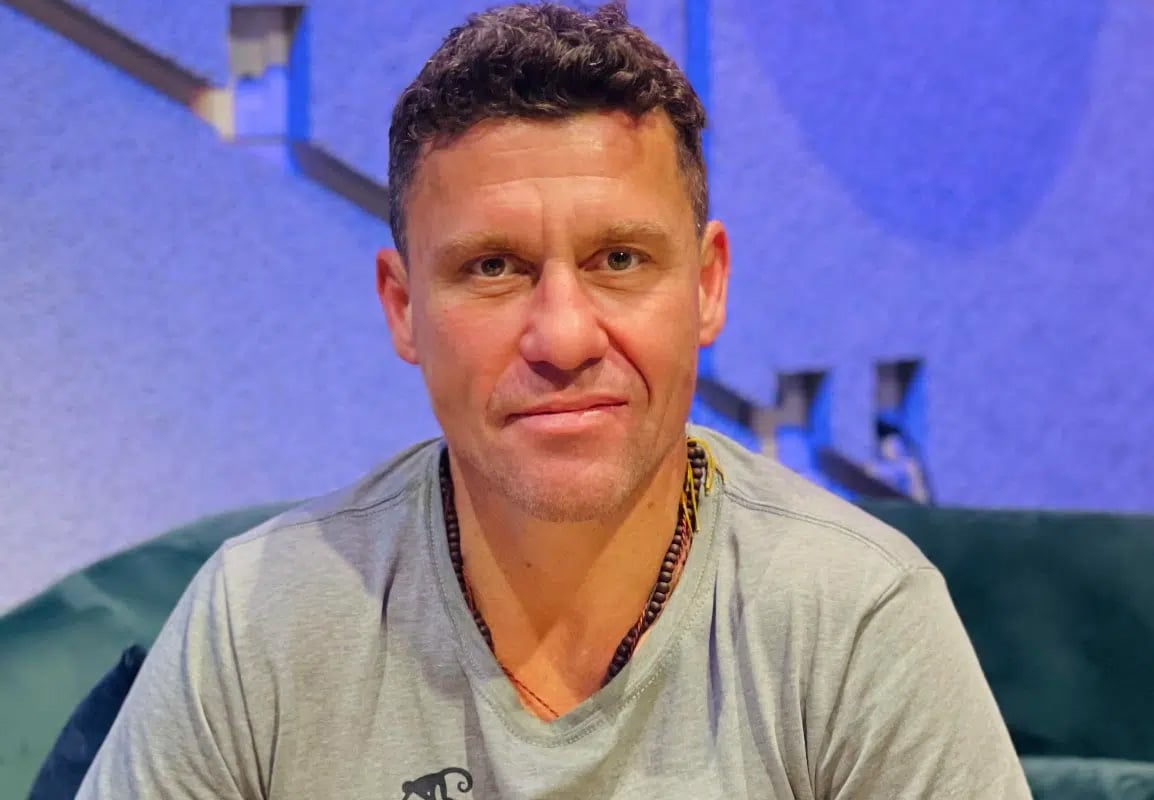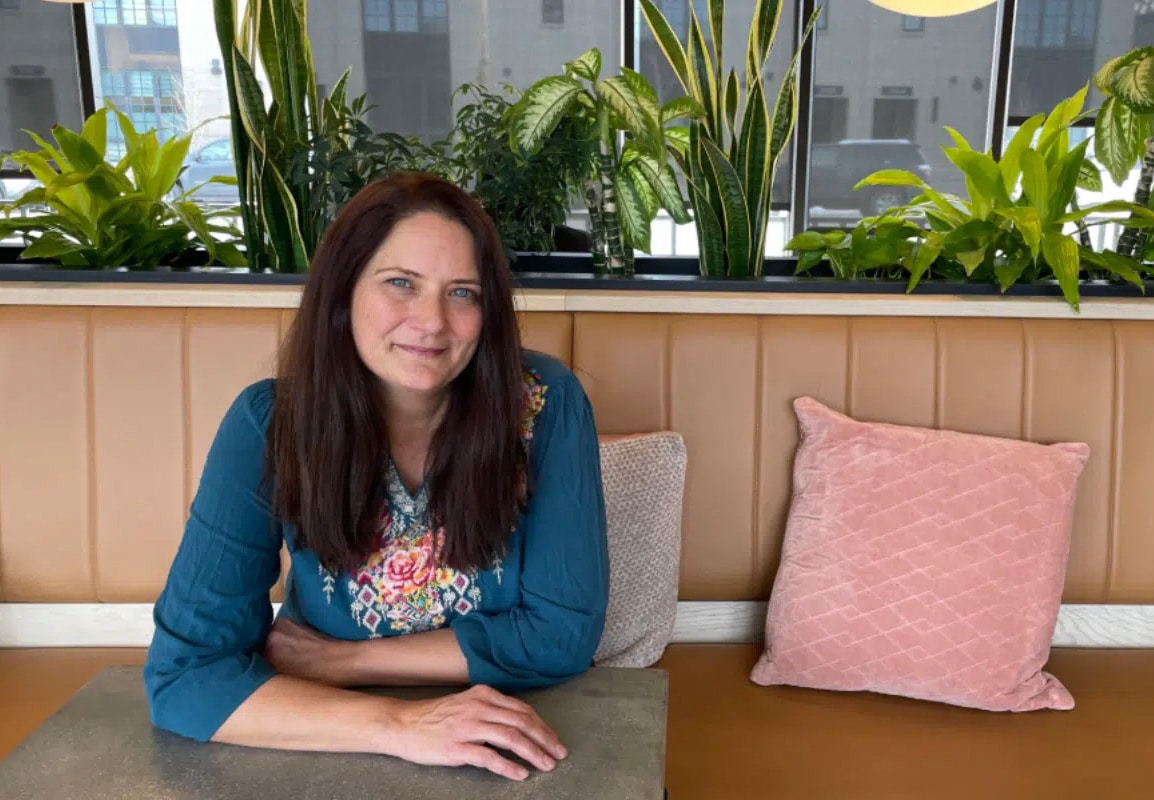Machines today struggle to match human capabilities in creativity and compassion and this actually brings forth numerous opportunities for humanity. However, unlocking this potential will require humans to overcome their often self imposed limitations.
We’re moving from the outdated concept of company culture to company consciousness.
Could you start by sharing more about your background?
I was a recruited athlete, a runner at West Point, part of the best distance running team in the institution’s history. I was president of my class at the academy, then branched Infantry and served as an Airborne Ranger in the Army; basically I made a living jumping out of airplanes and helicopters through the night.
After my military service, I joined Janus Henderson, a Denver and London-based asset management company, where I led the institutional team. While I learned a ton being involved in mergers and acquisitions, I became disillusioned by the inefficiencies of large, publicly traded companies, especially the time wasted on discussions unlikely to materialize. Leaving in 2007, I co-founded founded Pacific Current Group in the financial services sector. It expanded into 19 companies across four continents and went public in Sydney, Australia, in 2014. It’s still traded on the ASX under PAC. Starting amid the financial crisis, we had to drastically evolve the company’s direction over seven years. I went on to serve as President of Crestone Capital, a multifamily office of entrepreneur-investors, from 2016 to 2019. However, I found that being a passive investor felt one step removed; I missed building and growing companies. I prefer being hands-on, actively involved in creating and growing businesses.
In 2019, I became the CEO of TIFIN, an AI-driven company in the wealth space, with around 10 employees. We pioneered natural language search and conversational AI in wealth with Magnifi before GPT and Open AI were common topics. I left TIFIN in October 2023, simply feeling I was in a different phase of life and wanted to return to creating at the early-stage company level. Despite leaving, I’m a significant stakeholder and supportive of TIFIN’s success.
Now, I’m involved in creating new companies, including Liminal Collective and advising another called Vantage Discovery, which focuses on the next level of AI in e-commerce with a team from Pinterest. Both companies are steadily growing, and my focus is currently on their development.
What I’ve learned over the past 20 years is that success, I believe, is about adaptability, flexibility, learning, and speed. Companies don’t die; people quit. Overcoming challenges requires self-awareness and a growth mindset. Things we’re now teaching through experiential accelerators at Liminal Collective.
Tell us about Liminal Collective.
It began really as a group of people exploring human performance in a variety of ways. Co-Founders like Jurgen Heitmann, from the military Special Operations community, Andy Walsh from Redbull and Ben Potvin from Cirque du Soleil got involved seeking to understand human performance from a unique perspective: Mind, Body, and Spirit.
Traditionally, business performance focused on the mind. So you read an article from Harvard Review and say “Hey, I have something to learn”. But now, caring for the body is equally vital for performance. We’ve all heard of the book, The Body Keeps the Score. I personally believe it starts with understanding yourself so you can recognize how these three things are communicating internally while paying attention to your intrinsic motivation. It’s really recognizing where your superpowers are and where your blind spots are – and that means showing up with vulnerability and authenticity.
Let’s say the entrepreneur or executive has an idea. Historically, their point-of-view might be that they know best, that they’re going to build something disruptive. But if they are a wise entrepreneur, they will continue to reinvent the business and evolve while receiving new information. We know that businesses don’t die, they fail to grow and improve. The business’s ability to do that is a reflection of the entrepreneur’s ability to do that. So understanding their interior condition or where their limiting beliefs are is a key factor. If the entrepreneur can’t continue to reinvent themselves and grow–neither will the business.
What makes Liminal Collective exceptionally unique?
At the heart of Liminal’s work is our Elite Performance Model supported by experiential accelerators. These are one to six day programs that might involve things like a deep ocean swim at night or composing a song with a professional songwriter, experiences that get people out of their comfort zone and show them how their own limiting beliefs about what they are capable of are holding them back. The rate of learning is dramatic.
Ultimately, we deliver crucial learnings for entrepreneurs and executive success—something you just won’t find in MBA programs, accelerators, or incubators. Instead of dwelling on the “how” our methodology is about the “what.” For example, someone like Shaun White wouldn’t necessarily benefit from a snowboard coach trying to improve his technical skills. Instead, he might need inspiration from the lead singer of Coldplay, Chris Martin. This unconventional approach helps unlock Shaun’s spirit…enabling him to create a groundbreaking performance in the half-pipe, and eventually earning a gold medal.
Liminal’s approach is also tailored to each individual, helping them break through their existing belief structures to reach their full potential in unique ways. Liminal is focused on traits like resilience, adaptability and performance under pressure.
You’ve talked about getting out of your mind which is pretty counterintuitive for any CEO, executive, or employer. Can you share more on that?
One of my partners, Ben Potvin, was with Cirque du Soleil for decades. If you think about their performers they have to execute about 500 shows a year and they have to do it flawlessly.
We’ll replicate a program working with stage, music, and acting, methods used to push people out of their comfort zone and help them expand beyond what they thought they were capable of in just a few hours. It’s super uncomfortable for people that are used to being behind a screen writing code all day. It’s about getting folks more into their body, having a somatic experience, breaking through limiting beliefs to reach their true potential—the expression of their spirit.
Many start-ups don’t “make it.” How is Liminal Collective approaching this challenge?
About 90% of startups will fail. Even with programs like Y Combinator or TechStars, the success rate is only about 18.5%. So how do you help more companies succeed? By focusing on the people leading them. This isn’t limited to startups; leaders in larger companies face the same challenges.
Understanding yourself is crucial, but so is building trust within a team. Liminal facilitates this process by building trust and improved communication for better business performance. Whether in smaller or larger companies, the goal is to deepen relationships within teams because that’s where the big performance gains happen.
Next month, we’re hosting 70 executives from a leading company. Every individual will have to get out of their comfort zone and discover their growth edge. When that happens, vulnerability spawns and that creates the opportunity to show-up authentically. Ultimately, what emerges is the beginning of trust.
How do you ensure businesses continue to succeed long after the experiential events?
After events, we help clients integrate their learnings into their daily work or lifestyle. Taylor Johnson leads this effort for us and he has a background as NFL Performance Coach, an e-sports athlete coach and coaches many high level C-Suite executives today. Our goal is to make workplaces, whether large or small, supportive of personal growth. Not just passively but actively encouraged by the entire organization. We’re moving from the outdated concept of company culture to company consciousness.
You don’t know how to write Python, that’s okay. You can learn. You’ve never run a P&L before, no big deal, you can learn. For me, I only want to hire people that are focused on lifelong learning and that are creative problem solvers.
The reality is most aspects can be taught which leads us to the concept of traits, skills, and states. For example, my partners Andy Walshe and Jurgen Heitmann, are working with the San Antonio Spurs to help them develop their new performance facility. I’m 5 ’11”, never going to be 6 ‘4″, that’s a trait. Skills, on the other hand, something you can learn. Like being the best free throw shooter on the team. It just needs to be trained. And states, is where mind and spirit intersect. It’s where you’re able to calm the body so you’re can make incredible free throw shots or know when to make a crucial decision in your business.
Your mission statement is to help humans achieve or explore the boundaries of their full potential and to make the workplace a place where it’s okay to do that. Can you describe a future workplace with that in mind?
We’re seeing examples in bigger workplaces like Google where they encourage spending 20% of the week exploring personal interests beyond the job description. In smaller workplaces like TIFIN, with 300 people, we have a Chief Mindfulness Officer to help individuals focus and catapult off their strengths.
I think we’ll start seeing more companies offering themselves up as a place to grow as a person. There’s just no way you can attract talent unless you’re saying this is the place you can come and grow. The first step in doing that is separating the person from their performance. If someone performs poorly, it doesn’t make them a bad person, it’s about having an honest discussion on improvement. Going beyond your growth edge might lead to failure or pain, but it’s an opportunity to learn and grow. What’s not okay is playing in the safety zone all the time.
We also emphasize values like honoring truth—people speaking their truth and listening to others. And It’s not just about one person saying it’s important; it’s about everyone embodying their truth.
Tying back into how AI is rapidly changing the workplace. Can you share insights as automation increases and creativity becomes more important?
Work should be an enjoyable place where people can show up as their authentic selves and experience the growth they desire through their weekly tasks. Currently, work and personal enjoyment are separate, with only a fraction of the workweek dedicated to enjoyable activities. As machines take over less desirable tasks, humans can bring more of what they enjoy into their work, making it a place for full human experience and expression. This integration will lead to a significant acceleration of innovation, creation, and speed.
There’s a company in Boulder that’s a little like Google’s workspace where you can have six or seven people collaborating and writing code at the same time. You get six people doing that at the same time, it’s pretty enjoyable exercise from a creation perspective. And there’s a very strong AI component that does the part of coding that people typically have not enjoyed that much.
What can you share to individuals curious about growth and self-actualization?
Really get comfortable with understanding your blindspots. Ask me about start-ups and it’s a yes, but if you asked me to write—I hate writing, it’s scary for me I feel super vulnerable when I have to write so I don’t like to do it at all. Or ask me to run all night, it might hurt like hell, but I’m comfortable with it. So everyone will be very different in that realm. It doesn’t have to be as dramatic; it could be as simple as owning your mistakes. Sometimes companies or people have trouble doing that.
It’s more about being unafraid to do new things and not judging or being too hard on yourself when they don’t go well. So you feel super uncomfortable–you’ve found your growth edge. Moreover, it’s about self-awarness. Yes, step on the gas when you are in your genius zone but don’t be afraid to explore your blind spots, that’s where the best learning is.
What is your Ask and Offer for the Kiln Community?
For Kiln members, the ask is to let me know how Liminal can assist with your business. We offer bespoke solutions personalized for every business.
The offer is that there’s a 20% discount on any service for Kiln members. You can reach out to me at jack@liminalcollective.com.









